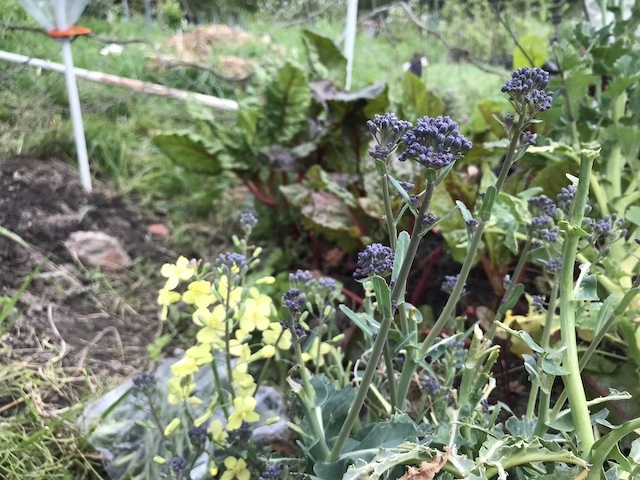At our local allotments, permaculture teacher Mike Fiengold re-distributes food waste in the community. Even after he has sent food to various local charities there is lots left over, and so he asks if we can take some away. At first I felt it greedy to take more than what I considered to be my fair share. But then I realised it was helpful if we could take as much as possible off his hands. Because if he can clear his stores, he can get more of whatever waste the system is generating and put it into the hands of the people that need it. So now we take more than we need and try to distribute this excess among our neighbours on our street.
There’s a few things going on here that I want to note.
The first is waste being used as an input to the system. In this case the existing local food system is producing a waste product – surplus ‘out-of-date’ food, which is actually perfectly edible.
Second, when you are using waste as an input to the system, if the waste stream is fluctuates, your waste input stream and your demand needs may not be in synch. There is therefore the need for storage.
Third, when there is something in abundance, there is more to share and there is more to keep. People can be unified in this sharing of riches. Contrast this when you are dealing with things that are scare. Then there is competition for what little there is left. People can be divided by who does and doesn’t have.
Fourth, when you share what you have in abundance, you create the incentive for others to share with you what they have in abundance. The result is a a greater-than-zero-sum gain, rather than the zero-sum gain of financial transaction.
Taking these four points together, I see the benefits of keeping the system of food recovery and turning. The faster the food can be redistributed, the faster this mutually reinforcing system of exchange can mature.
Reflecting on this experience has also led me to think about how my choices are influenced by what I want rather than what is available. If I want something that is not in abundance then it probably requires energy, chemicals, time and other resources to extract it. But if what I want is in abundance then my taking of it has a much lower impact, and taken within limits, may actually help the system grow and flourish.
This is quite a dizzying observation. A look through my bank statement shows just how much of what I want is not in abundance. At a different scale, a look at modern construction shows how little we work with what is in abundance. The dizzying part is recognising the potential scale of the benefit – and challenge – of personally and at an industrial level moving to working with what is in abundance.
Footnote. I wrote most of this post on the train to Bristol. I recognised my desire to buy a snack from onboard trolley as wanting something that has a potentially high impact, and so through a certain amount of will power declined to buy something. Later I noticed that a cake had fallen off the back of the trolley. I offered to share it with the people around me but no one accepted. I think they appreciated the gesture though.


Leave a Reply